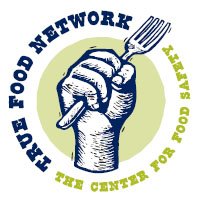 Several large dairy producers and food companies have made news recently by getting rid of recombinant bovine growth hormone, also known as rBGH or rBST, from their milk supply. Even retail giant Wal-Mart has announced that all of their Great Value brand milk will now come solely from cows not treated with rBGH. While this is great news for consumers, since this genetically engineered growth hormone is known to cause harm to cows and may pose health risks to humans, Monsanto (the company that makes rBGH under the brand name Posilac) has not taken the news as well.
Several large dairy producers and food companies have made news recently by getting rid of recombinant bovine growth hormone, also known as rBGH or rBST, from their milk supply. Even retail giant Wal-Mart has announced that all of their Great Value brand milk will now come solely from cows not treated with rBGH. While this is great news for consumers, since this genetically engineered growth hormone is known to cause harm to cows and may pose health risks to humans, Monsanto (the company that makes rBGH under the brand name Posilac) has not taken the news as well.FDA approved the use of voluntary labels more than 12 years ago at the request of dairy companies seeking to respond to customer concerns over the use of the genetically engineered hormone. Last year Monsanto pressured the FDA to restrict the use of labels identifying "rBGH-free" or "rBST-free" dairy products, but FDA rightly refused to do so. In late August 2007, the FTC wrote to Monsanto, "The FTC staff agrees with FDA that food companies may inform consumers in advertising, as in labeling, that they do not use rBST." Since Monsanto could not convince the Feds to ban these labels, they have taken their fight to the state level.
Under the guise of protecting consumers from misleading information, states all over the country are considering restricting or banning dairy producers from labeling milk as produced without recombinant bovine growth hormone, which would eliminate consumers’ right to know what’s in their dairy products. Many consumers object to this hormone, known as rBGH or rBST, and these proposed regulations actually take away farmers' right to free speech and censors the truthful information consumers want and need. Such rules have thankfully been dismissed in Pennsylvania, Indiana, and New Jersey due to overwhelming consumer opposition, but Ohio recently passed such an unfortunate rule.
The long-term health impacts of rBST are not yet understood, and families with young children understandably want to avoid synthetic hormone use. In fact, an April 2007 Lake Research Partners' national survey conducted for Food and Water Watch shows that eight in ten adults (80%) feel dairy products originating from cows that have not been treated with rBGH should be allowed to be labeled as such.
As Laura Fortmeyer, a Kansas farmer and boardmember of the Kansas Rural Center put it: "As a Kansas farmer, I should be able to produce and promote products that respond to desires in the marketplace. As a Kansas consumer, I want a lot more information about the food I buy-where it comes from and how it's raised-not less. If milk producers and processors are willing to make the effort to provide the rBGH-free milk that I am looking for, they deserve my business.”
Without labeling to provide that information, Laura and all the rest of us will be left shopping in the dark.


No comments:
Post a Comment